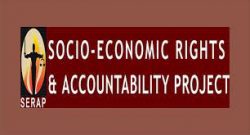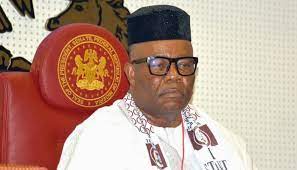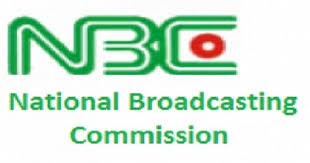The Socio-Economic Rights and Accountability Project (SERAP), at an interactive session with stakeholders in Lagos on Promoting Transparency and Accountability in the Use of Public Funds in Nigeria with Focus on the Niger Delta, adopted 10-point Action Plan on boosting advocacy for environmental justice in the region.

SERAP develops 10-Point Action Plan on Promoting Transparency and Accountability in the Use of Public Funds in Nigeria with Focus on the Niger Delta
The 10-point action plan was a product of research by SERAP conducted by Olubunmi A. Afinowi, Ph.D.
Afinowi listed the 10 action plan to include: Situation Analysis, Stakeholder Engagement, Advocacy and Capacity Building, Information Availability and Dissemination, Community Empowerment and Impact Assessment, Monitoring and Reporting, Legal Framework Enhancement and Policy Influence, Feedback and Accountability, Environmental Sustainability and Land Management and litigation – Sue!
READ ALSO: Umahi unveils new policies on Fed roads
She highlighted each action plan as follows:
Situation Analysis
* There have been incessant lapses in resource management in the Niger Delta Region.
* This mismanagement extends to both the activities within the industry and the intervention programmes meant to develop the host communities.
* There are a lot of gaps in community engagement,needs assessment, and collaboration in determining what projects to be undertaken within the communities. These lapses have culminated in unsuitable community projects, abandoned or ill-executed projects.
Stakeholder Engagement
* It is pertinent to have a Partnership for Accountability in the Safegurad and Development of the Niger Delta Host Communities. This should comprise state and non-state actors. Communication channels must be established between all relevant stakeholders.
* To achieve results, engagements must be periodic and take different forms, including town hall meetings, community engagements, workshops, dialogues, and so on.
Advocacy and Capacity Building
* Collaborative efforts amongst stakeholders to develop and implement training programs for members of local communities, focusing on issues such as the provisions of the law, environmental rights, resource management, monitoring of oil and gas activities, reporting mechanisms and their duties as part of the governance process.
Information Availability and Dissemination
Create a platform or avenue for sharing information related to oil and gas activities, revenue distribution, and environmental impact assessment with local communities.
Also, develop and distribute educational materials to raise awareness about the industry’s effect on communities and the importance of transparency.
Community Empowerment and Impact Assessment
* The strengthening of the voices of community members through community-based organisations to enable local communities to participate actively in decision-making process.
* Continuously assess the impact of community empowerment initiatives on transparency and accountability in oil and gas resource management.
Success stories and challenges encountered should be documented and shared with stakeholders and donors.
READ ALSO: CACOL cautions against use of police intimidation to cover up alleged diversion of Ogun LG allocations
Monitoring and Reporting
* Set up a monitoring system to track oil and gas activities and environmental impact, this is closely linked with information dissemination and should be synergised.
* Community members should be trained to collect data, conduct site visits, identify risks and hazards such as oil spills or other detrimental occurrences and report any irregularities to relevant authorities and the Partnership/Coalition.
Laryngeal Framework Enhancement and Policy Influence
* Organise periodic engagements with legal and environmental experts and policymakers to review and strengthen existing laws, regulations and policies related to the oil and gas sector in terms of resource management and extractive activities.
* CSOs should continually advocate for the inclusion of provisions that promote transparency, accountability, and community involvement within the sector.
Feedback and Accountability
* It is essential to report progress and outcomes to stakeholders, donors, and the public through various communication channels, including reports, websites and social media.
* There should be a monitoring and evaluation framework to assess the impact of the action plan, measure progress toward goals, get feedback from various stakeholders and identify areas for necessary improvement.
Environmental Sustainability and Land Management
* State and non-state environmental agencies and organsiations should collaborate to address environmental concerns and ensure responsible land use for explorative and extractive activities.
Sue!
* The government, oil and gas companies and all other key players must make concerted efforts to recognise the right to a clean and healthy environment and set up a framework towards its actualisation first in the Niger Delta, and in Nigeria, as a whole.
* When violations occur against this right, Individuals, Communities, CSOs should seek redress in the Courts, both local and international.

 Football7 days ago
Football7 days ago
 Entertainment6 days ago
Entertainment6 days ago
 Football1 week ago
Football1 week ago
 Business5 days ago
Business5 days ago
 Football1 week ago
Football1 week ago
 Football6 days ago
Football6 days ago
 Business6 days ago
Business6 days ago
 Crime7 days ago
Crime7 days ago










